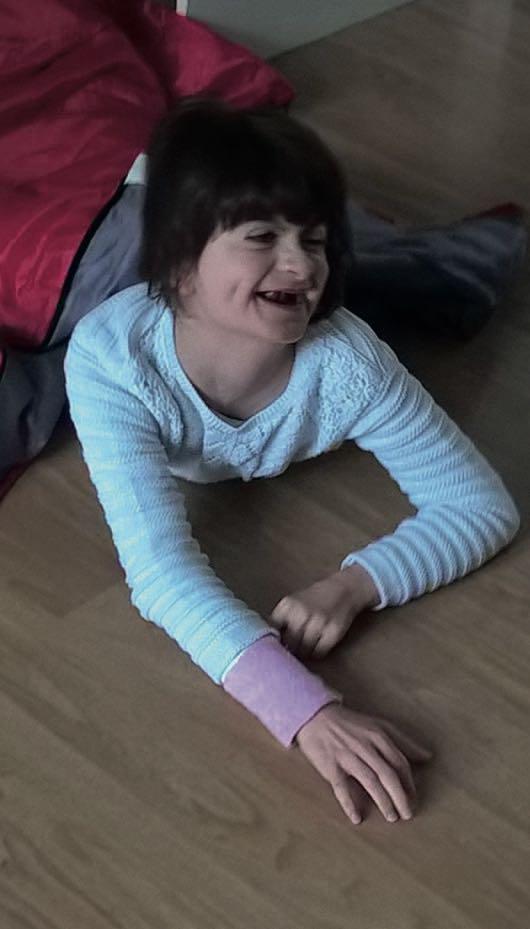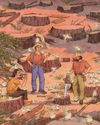Prøve GULL - Gratis
What My Sister Taught Me About Humanity
Philosophy Now
|October/November 2025
Lee Clarke argues that we need a more inclusive view of moral personhood.

On 21st April 2022, the then Australian Prime Minister Scott Morrison answered the question of a lady with an autistic son during an election debate by saying that he was 'blessed' not to have had children with disabilities. The comment caused controversy, with many calling it upsetting and insensitive. What his comment also did, though, was get me to think about my own experiences with disability from a philosophical perspective. I am not disabled myself, and I specialise in Comparative Philosophy, not Philosophy of Disability. What experience of disability, then, do I have? It is rather, the experience I had with someone else that explains why I feel that I have a genuine stake in this debate.
My younger sister, Laura, who passed away in 2018, had severe mental and physical disabilities. After reading the literature around the Philosophy of Disability, it occurred to me, mainly as a result of the work of Eva Feder Kittay, that many philosophers get things about cognitively disabled people wrong. Some even exclude them from the moral community through the claim they lack certain attributes which make them a 'person', such as rationality. I wish to comment on these issues from a perspective derived from growing up with Laura, and argue not only that it can be a blessing to have a disabled child in the family but that cognitively disabled people should be said to have an equal moral status by challenging the idea that reason is the unique arbiter of what constitutes personhood. Instead, we require a much more inclusive view.
Laura's Story
Laura was born on September 8th 1999 with the condition known as
Denne historien er fra October/November 2025-utgaven av Philosophy Now.
Abonner på Magzter GOLD for å få tilgang til tusenvis av kuraterte premiumhistorier og over 9000 magasiner og aviser.
Allerede abonnent? Logg på
FLERE HISTORIER FRA Philosophy Now

Philosophy Now
Books
Lucy Weir takes a wheel of healing for an intellectual spin, Frederik Kaufman examines a theory of the origins of equality, and Frank S. Robinson doubts a holistic vision of life, the universe, and everything.
14 mins
October/November 2025

Philosophy Now
Moral Decision-Making for a Job Search
Norman Schultz wonders when working is wrong.
14 mins
October/November 2025

Philosophy Now
The Mediation of Touch
A conversation between Emma Jones and Luce Irigaray.
15 mins
October/November 2025

Philosophy Now
Edward Gibbon (1737-1794)
John P. Irish considers some principles of history through the history of a historian.
11 mins
October/November 2025

Philosophy Now
Karl Sigmund
is an emeritus professor of mathematics at the University of Vienna. He has made major contributions to evolutionary game theory and to the history of the Vienna Circle, who met regularly in Vienna from 1924-1936. Katharine Mullen talks with him about mathematics, and about the Vienna Circle.
5 mins
October/November 2025

Philosophy Now
Can Al Teach Our Grandmothers To Suck Eggs?
Louis Tempany wonders whether the problem is with the machines or with us.
7 mins
October/November 2025

Philosophy Now
Revisiting the Ontological Argument
Raymond Tallis contends that a definition of God cannot necessitate God's existence.
7 mins
October/November 2025

Philosophy Now
What My Sister Taught Me About Humanity
Lee Clarke argues that we need a more inclusive view of moral personhood.
13 mins
October/November 2025
Philosophy Now
Macmurray on Relationship
Jeanne Warren presents aspects of John Macmurray's philosophy of the personal.
4 mins
October/November 2025

Philosophy Now
Forced Vaccination
Naina Krishnamurthy asks if it's ethical or egregious.
8 mins
October/November 2025
Listen
Translate
Change font size

